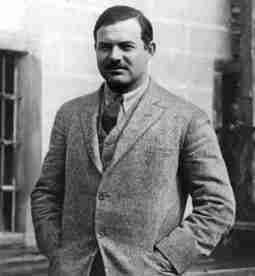As an improviser, you can transcribe solos. You can improve your technique. You can listen to your favorite recordings for hours each day. You can practically live in your practice room. But, no matter what you do or how much time you spend, at the end of the day you still have to deal with tunes. Despite all your hard work and preparation, there are still those tunes you don’t know. Lot’s of them. Hundreds of tunes. How exactly are you going to learn all these tunes?
The truth is that you aren’t going to know every tune ever written. Try as they might, no one does, not even the greatest players out there. However what you can do is slowly but steadily add tunes to your repertoire, one by one.
Each day you can make a little headway. This is the mark of a great player. Aim to know more tunes this week than you did last week. Work tirelessly on your ears and playing what you hear, so you can figure out the tunes you don’t know. Strive to learn something new everyday.
Expanding your repertoire is something that every improviser must deal with, it’s a process that never ends. However, this process of learning tunes doesn’t have to be a recurring nightmare that’s constantly holding you back and preventing you from going out and playing. It can be simple, even fun.
Here are three things that you can do in your daily practice to make the process of learning tunes simple, easy, and enjoyable:
I) Make a plan
Getting organized and working towards a long term goal. Structuring your daily and weekly practice routine. Believe it or not, these simple tasks are the single most important factor in building a solid repertoire of tunes. It can mean the difference between having a solid base of tunes 6 months to a year from now or being stuck with the same few standards that you know today.
The secret to memorizing a bunch of tunes is not related to natural talent or technique. It all comes down to motivation, organization, and some serious time spent with the records. You have to consciously say to yourself “I am going to learn more tunes and here’s exactly how I’m going to do it.”
You can wish to know more tunes all you want, but until you do something about it, you’ll be stuck with your limited repertoire months or even years from now. Whether you like it or not, you need a plan.
“At night, never go to bed without knowing what you’ll write tomorrow.”~Ernest Hemingway
The problem with the way that most people are learning tunes is that they are stuck in the day to day view of practice, choosing things at random to work on. One day they focus on one tune, the next it’s something completely new. A week later it’s yet another set of exercises and a new batch of tunes.
They are constantly starting new projects and focusing on new tunes, yet never actually completing any of these projects. Time is faithfully spent in the practice room, but no tangible results are actually achieved.
If you are serious about achieving a big goal like learning a bunch of tunes however, you need to stop this cycle and take a different approach. Take a step back and look at what is actually happening in the practice room. Look at the big picture a month, 6 months, even a year down the road. You need to have a goal and each day you need to slowly work towards this goal.
Make a list of tunes
Step one is to create a list of tunes that you want to learn. Quite simply, if you haven’t identified what you’re going to learn, you’re not going to learn it.
Off the top of your head, think of the tunes that you need or want to learn. What was the last tune that someone called that you didn’t know? What are the tunes on that favorite record you’re always listening to?
Having trouble thinking of tunes that you should learn? Here are some articles that we’ve written about learning tunes and building your repertoire that should give you some ideas:
Also, check out the websites of the major jazz schools and conservatories around the country. What tunes do they require on an audition tape? What tunes are the students expected to know on a jury? The jazz program at the Manhattan School of Music has a list of tunes that students are expected to know at the end of each year and this is a great resource for creating your personal tune list:
- MSM Jazz Arts Handbook (pdf)
Another easy thing you can do everyday to build your list is to write down any and all tunes that you find yourself listening to. If you’re at a concert and the group plays a tune you like or a composition that you’re unfamiliar with, write it down. When somebody calls a tune at a jam session that you don’t know, add it to the list. Always be on the lookout for tunes that you can add to your repertoire.
After some time, what you’ll end up with is a “master list” of tunes that you want to learn. And, this list is always going to be growing and expanding. From this big list, pick 2-3 tunes that you want to learn first. You are going to focus on these tunes exclusively for the next week or so.
You don’t want to try to learn the entire list at once, this will just lead to frustration. Instead, pick a few tunes that you can easily learn in a short amount of time. If the melody of the tune is pretty simple (Solar, Now’s the Time, Oleo) you can attempt to learn multiple tunes at once. However, if you choose a more complex tune, Donna Lee for example, you’re going to want to focus on only that tune for an extended period of time.
II) Listen, listen, listen
Once you’ve picked out the tunes you are going to focus on this week, it’s time to find versions of these tunes to listen to from your collection or online.
One of the main reason we think learning tunes is so hard, is because we try to jump right into the learning process without any preparation. The first time we seriously listen to a tune is the moment when we start trying to learn it in the practice room. This shouldn’t be the case! You want to go into the practice room with the melody in your ear and the ability to sing each pitch spot on. This will make things so much easier for you and will cut the time it takes to learn these melodies in half.
When searching for recordings, find as many versions as you can (like we do with On Green Dolphin St. in this article). Search for them on YouTube, borrow recordings from your friends, look for them at the library (…do people still go to the library??). Pick the versions that you like best and seek out the players that you want to sound like. Remember that the process of learning tunes should be fun, not a dreaded chore.
When you’ve got the versions you like best, put them on your phone or ipod and listen to them whenever you can. Put on the recording first thing in the morning as you wake up and right before you go to bed. Aim for focused listening and aural analysis instead of treating this as background music.
The goal is to be able to sing these melodies note for note before you get to the practice room. By doing this simple step, you’re making the next step learning process that much easier.
III) Learning it
So you’ve picked out your tunes, you’ve listened to them, you’ve got the melodies in your ear, and now it’s time to actually learn them on your instrument.
For starters, break up the tune into sections. Don’t try to tackle the entire melody at once. For a step-by-step description of this process, check out this article.
Remember, not everything in practicing improvisation is going to be creative and intuitive. Sometimes we have to switch to the left brain and become an unrelenting task master; and learning tunes is definitely one of these cases. Stay focused and disciplined. You’re goal is cut and dry here: Learn a phrase, repeat it a bunch of times, and move to the next phrase.
After some time, you’ll be surprised at how quickly you’ll pick up tunes in this fashion. If you’ve pre-listened and you focus in the practice room, you can learn a melody in minutes. And, if you’ve laid out an organized plan for yourself, you can rapidly increase the number of tunes you know in the space of a month (2-3 tunes a week = 8-12 tunes a month).
The weight of building a repertoire of tunes is always going to be there. You’ve got a choice, you can stay on you’re current random path of learning and continue to be stressed out under this weight, or you can get organized and do a little bit each day, confident that you are steadily making progress.
If you approach them in the right way, tunes aren’t really that big of a deal. So, get a plan and don’t get caught up in the hype.











